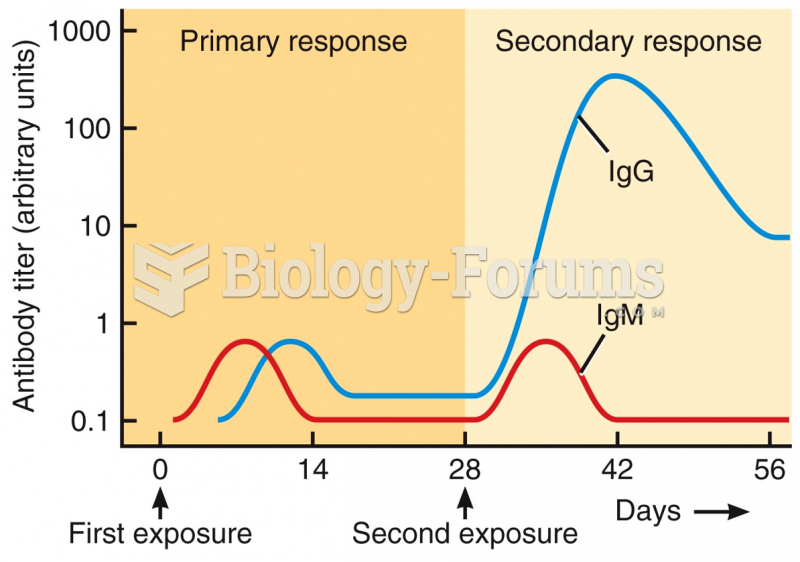This topic contains a solution. Click here to go to the answer
|
|
|
Did you know?
People with alcoholism are at a much greater risk of malnutrition than are other people and usually exhibit low levels of most vitamins (especially folic acid). This is because alcohol often takes the place of 50% of their daily intake of calories, with little nutritional value contained in it.
Did you know?
Thyroid conditions cause a higher risk of fibromyalgia and chronic fatigue syndrome.
Did you know?
More than nineteen million Americans carry the factor V gene that causes blood clots, pulmonary embolism, and heart disease.
Did you know?
Cancer has been around as long as humankind, but only in the second half of the twentieth century did the number of cancer cases explode.
Did you know?
The ratio of hydrogen atoms to oxygen in water (H2O) is 2:1.
 The term wasp is typically defined as any insect of the order Hymenoptera and suborder Apocrita that
The term wasp is typically defined as any insect of the order Hymenoptera and suborder Apocrita that
 The material safety data sheet (MSDS) for sulfuric acid showing the detailed technical information ...
The material safety data sheet (MSDS) for sulfuric acid showing the detailed technical information ...





